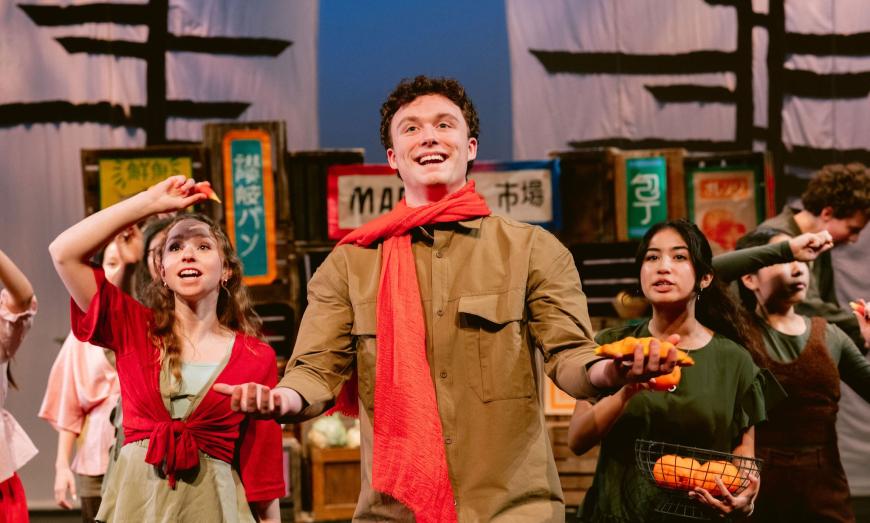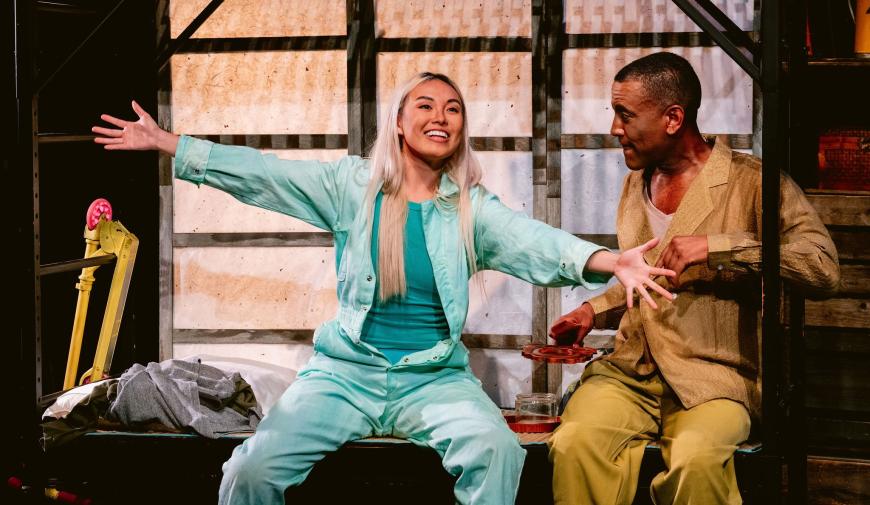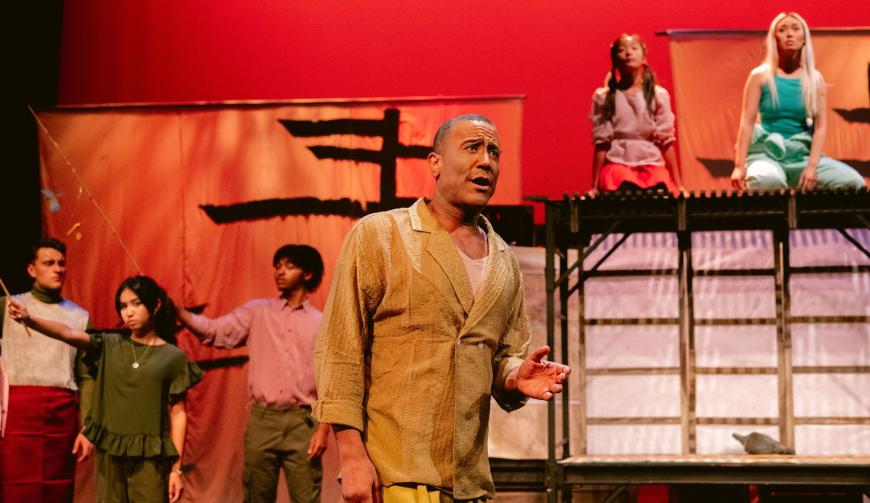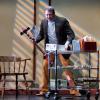
Operas exist for musical forces of any size, from Laura Kaminsky’s As One, for two singers and a string quartet, to works like Richard Strauss’s Elektra, which calls for more than a dozen principal singers and 100-plus instrumentalists. On Oct. 27 and 28, Opera Parallèle presented the world premiere of a modestly-scaled new opera, The Emissary, by composer Kenji Oh and librettist Kelley Rourke.
The Emissary lasts only about 50 minutes and calls for a chamber orchestra of six players, a few soloists whose roles are very short, and a youth chorus. Matthew Linzer designed the sparse but evocative scenery and props, as well as the costumes, and the opera could surely be staged using the singers’ own clothing.
The Emissary is the latest in Opera Parallèle’s Hands-On-Opera series, which features works that are intended to give “non-professional singers the opportunity to participate in producing and performing in a fully-produced opera.” The 14 non-professional singers here were primarily from Lick-Wilmerding High School’s Vocal Ensemble, with several additional student choristers involved.

The source material for The Emissary is the short novel of the same name by the Japanese author Yoko Tawada. In the novel, a past environmental disaster has affected the entire population of Japan. Older people have become close to immortal, while young people have serious disabilities and, perhaps whimsically, might unexpectedly change sex one or more times.
In an interview with the opera’s creative team, Tawada herself noted that “the situation is tragic, but the mood is not.” Rourke’s libretto focuses tightly on the effects of environmental destruction and the relationship between an old man, Yoshiro, and his great-grandson, Mumei. Yoshiro’s other relationships, with his wife, their daughter, and their grandson (Mumei’s father), are omitted from the libretto. And in keeping with Tawada’s comment, the mood of the libretto is gentle, not apocalyptic or sorrowful.
For this opera, his first, Oh has composed charming and relatively uncomplicated music. The singers don’t have arias. The vocal lines are conversational, undemanding, and written within a limited range. Oh doesn’t always set the text colloquially, and there are misplaced accents here and there.

The orchestral music is comfortable, sweet, and easy to listen to. The most complex music is given to the piano, with the other instruments — violin, cello, percussion, flute (doubling piccolo), and clarinet (doubling bass clarinet) — nicely seasoning the score. Opera Parallèle Artistic Director Nicole Paiement conducted with her usual thoughtfulness and excellent attention to the cast.
All of the singers in the principal roles were excellent, to the point that you could certainly wish the opera were more expansive. Baritone Bradley Kynard made a stalwart and loving Yoshiro, and soprano Angela Yam was an adorable and vocally excellent Mumei, capturing his physical weaknesses without any sense of mawkishness or disrespect. Student choristers Cayden Sewell, Andrew Nay, Dash Donovan, Claire Malaney-Lau, Naomi Coffman, and Perri So had small roles in Saturday’s performance, and all fulfilled them well. So, as Suiren, the girl next door to Yoshiro and Mumei, in particular had a draw-the-eye quality that can’t be taught. Yayoi Kambara was the attentive and sensitive director.
The Emissary is both charming and very much of the moment, in that the choices we make now can limit the scope of future environmental disasters. The opera closes with a lovely round that the audience is invited to join in singing — so catchy that I fully expect the tune to be in my head for the next week.




